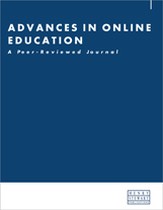Teachers’ digital competences as a key factor for the digital transformation of education
Abstract
Many factors influence teachers’ attitude toward using information and communications technology (ICT) and e-learning and their implantation in the educational process. Teachers are reluctant to embrace new things if they are not acquainted with them or do not have complete information. Those who have some knowledge and experience in the application of ICT and e-learning are more open to their integration. The COVID-19 pandemic was unexpected, and no one was prepared for it, especially those teachers who did not use ICT and e-learning. In a short period of time teachers had to embrace digital technologies in order to ensure continuation of educational processes. In surveys carried out during the pandemic, teachers find that their digital competences have increased based largely on the use of ICT and e-learning technologies. Two years after the start of the pandemic, surveys are showing that teachers have good knowledge of e-learning applications in the educational process, but they need professional development in the use of ICT and e-learning more than in digital pedagogies. Yet, their use of ICT and e-learning technologies during the pandemic is predominantly in videoconferencing tools to ensure the continuation of live lectures, and in the use of learning management systems (LMS) for dissemination of information about the course, learning materials and communication. Research results indicate that there are no significant changes in the use of LMS since before the pandemic. Experience gained during the pandemic is not in online education, but mostly in emergency remote teaching whereby teachers used basic technologies in order to ensure the continuation of educational processes. It can be concluded that lack of digital competence influences teachers’ readiness for use of digital technologies and their perception of the possibilities and benefits digital technologies can bring to education. It can also explain why teachers are going back to classroom teaching or an online/classroom hybrid as an addition to teaching and learning. Teachers’ digital confluence can significantly influence the process of digital transformation of education, as competent teachers will be able to provide high-quality education. It has become evident that digital technologies are unavoidable in the educational process and their implementation is important for enhancing its quality. Accordingly, teachers’ continuing professional development must become an integral part of their career, not just an opportunity for those who are interested.
The full article is available to subscribers to this journal (subscription is free).
Author's Biography
Sandra Kučina Softić is the Assistant Director at the University of Zagreb University Computing Centre SRCE (Croatia). She is also the Head of the E-learning Centre at SRCE. She has over 25 years’ experience working in higher education. Her work is focused on monitoring and fostering e-learning in Croatian higher education and providing support and advice to institutions, teachers and students in the implementation of new technologies in learning and teaching. Her field of interest is strategic decision making related to digital education implementation in higher education and the enhancement of teachers’ digital skills. She is also active in the field of open education, actively involved in international projects and a regular speaker at conferences. Sandra has published over 30 papers and is the author of training courses for teachers on digital competences. In 2021, she authored the book on digital transformation in higher education Digitalna transformacija: novi pristupi i izazovi u obrazovanju (published in Croatian). Sandra has a Master’s degree in digital education from the University of Edinburgh, UK, and a PhD in information and communication technologies from the University of Zagreb, Croatia. She is president of the European Distance and E-learning Network EDEN UK, elected in 2019. Sandra has been a member of the EDEN Executive Committee since 2013; in 2014 she received the EDEN Fellow Title and in 2022 EDEN Senior Fellow Title. She is a member of the management board of the EDEN DLE.
Citation
Softić, Sandra Kučina (2022, September 1). Teachers’ digital competences as a key factor for the digital transformation of education. In the Advances in Online Education: A Peer-Reviewed Journal, Volume 1, Issue 1. https://doi.org/10.69554/CXGQ5967.Publications LLP
